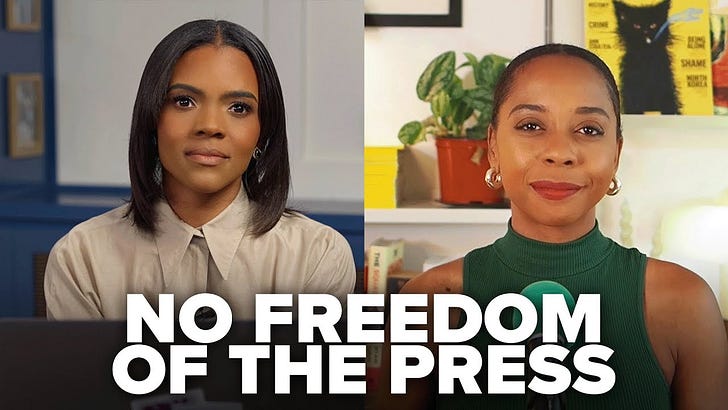Another Person Fired for Criticizing Israel?! | An Analysis of Candace Owens' Episode 5
Exploring the Boundaries of Free Speech and Media Bias in the Israel-Palestine Debate
In a recent episode of Candace Owens' show, titled "Another Person Fired for Criticizing Israel?!", Owens addresses the controversial firing of Briahna Joy Gray from The Hill and broader issues regarding the limits of free speech in relation to criticism of Israel. This topic is a microcosm of a larger, contentious debate in the United States about free speech, media bias, and the influence of lobbying groups.
The Context of Briahna Joy Gray’s Firing
Briahna Joy Gray, former press secretary for Bernie Sanders, was reportedly fired from The Hill after making statements that were critical of Israel. According to Gray, her firing was a direct result of her expressing views that questioned Israel's policies. The discussion highlights a perception that criticizing Israel is a "red line" that, once crossed, can lead to severe professional consequences, regardless of political affiliation.
Candace Owens’ Perspective
Owens opens her episode by posing a provocative question about the extent of Israel's influence over American politics, even hinting at a loss of sovereignty and free speech. She points to recent legislation, such as an anti-Semitism bill in Congress, as evidence that criticism of Israel is being systematically stifled.
Owens argues that this form of censorship is not unique to Gray's situation but is part of a broader trend where individuals, particularly those in the media or political sphere, face severe backlash for not being sufficiently pro-Israel.
She uses the example of the attempted ban on TikTok to illustrate how American policy can be influenced by foreign affairs, implying that actions against TikTok were more decisive when the platform was perceived as anti-Israel.
The Media's Role and AIPAC's Influence
A significant portion of Owens' monologue criticizes the American Israel Public Affairs Committee (AIPAC) and its perceived influence over U.S. lawmakers. She references statements from Representative Thomas Massie about the pervasive presence of AIPAC representatives, suggesting that this level of foreign influence should be subject to more scrutiny and regulation.
Owens also touches upon the media's portrayal of those who criticize Israel, suggesting that the media tends to label these individuals as anti-Semitic, irrespective of the substance of their criticism. This, she argues, creates an environment where genuine debate and dissent are suppressed.
Interview with Briahna Joy Gray
The episode features an interview with Briahna Joy Gray, who elaborates on her experience and her views on the broader implications of her firing. Gray argues that there is a disproportionate response to criticism of Israel compared to other nations, which she attributes to powerful lobbying and a cultural predisposition to protect Israeli interests.
Gray and Owens, despite their political differences, find common ground in their belief that free speech should include the right to criticize any nation, including Israel, without fear of professional retribution. They discuss the necessity of maintaining a principled stance on free speech that does not exclude sensitive or controversial topics.
Conclusion
Candace Owens' episode with Briahna Joy Gray underscores a critical and controversial debate about the limits of free speech in the context of criticizing Israel. It raises important questions about the influence of lobbying groups like AIPAC, the role of media in shaping public discourse, and the potential consequences for individuals who challenge prevailing narratives. This episode serves as a call to re-examine the balance between free speech and political pressure in a democratic society.
Call to Action:
Watch the full episode to gain a comprehensive understanding of the complexities and ethical considerations in the Israel-Palestine conflict. Your engagement and awareness are crucial in fostering a more just and humane approach to this enduring issue.
Blessings on you and your family, and from all the PLUCare staff! Thank you again for subscribing.
PLUCare is a reader-supported publication. To receive new posts and support our work, consider becoming a paid subscriber. And if you are a paid subscriber, thank you!
I’ve made this post free for all. The biggest help you could give me is to share it widely (I mean, if you enjoyed it that is..)





